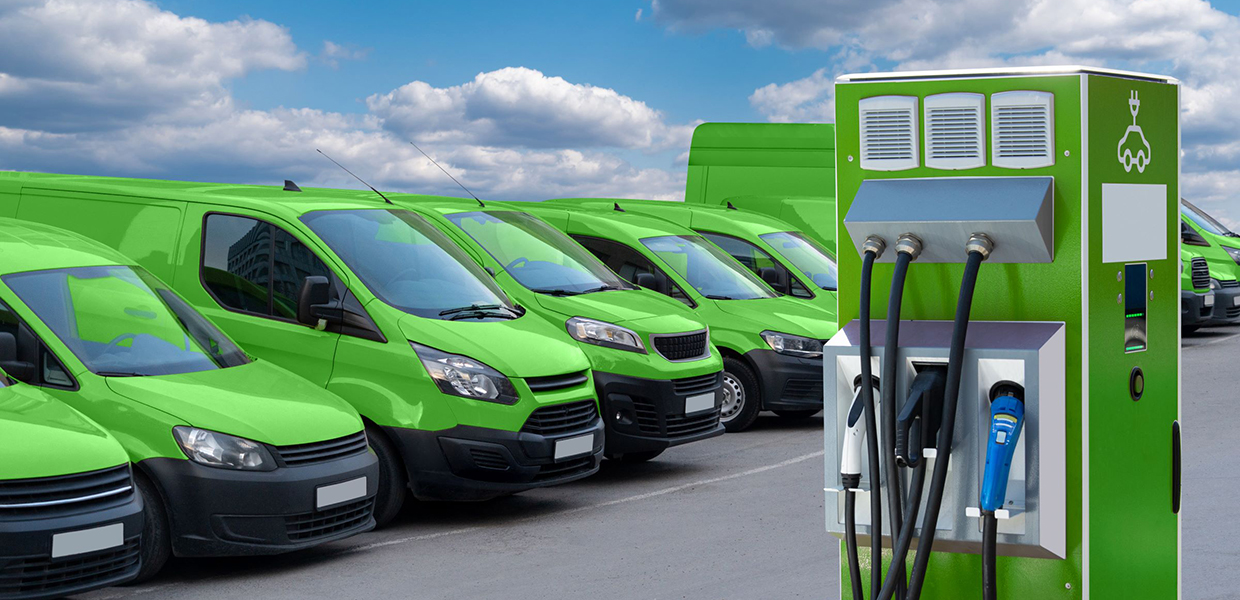Between meeting sustainability targets, a booming e-commerce market, and clean transport policies in cities, companies and logistics operations are fast moving towards EV (Electric Vehicle) fleet adoption.
In particular, last-mile delivery operations are poised to become key players in the eMobility space, with companies like online supermarkets and parcel delivery companies already boasting significantly reduced-emission delivery fleets and other retail giants committing to carbon neutrality in the near future.
For logistics operations, fleet electrification offers more than just a method of meeting a mandatory requirement. The implementation of an electrification strategy not only impacts the environment but can also have a significant impact on a fleet’s bottom line.
However, many logistics businesses are still at the very beginning of their eMobility journey. They are in the process of researching best practices in the electrification of fleets, navigating the purchase of their first electric vehicle, and developing a charging strategy to create a smart solution that is scalable for the future.
For these companies, there are important considerations to keep in mind before adopting an electric fleet.
Integration of charging infrastructure
Arguably the most important aspect of transitioning to an EV fleet is the planning and implementation of the required charging infrastructure. Considering all the factors, such as placement of charging stations, grid connection, and parking spots, is the first step in the process. Should an upgrade to the grid infrastructure be required, it could result in serious delays to the project, increasing the cost unexpectedly.
Businesses should also consider how quickly new charging points can be integrated as they scale up their operation.
Ensuring optimum fleet management
Despite advancements in battery and charging technologies, EVs currently will typically require more time to recharge than internal combustion engine (ICE) vehicles take to fill with fuel. This means it can be helpful to integrate your fleet management software to monitor your vehicles, charging status, and chargers. This helps manage fleet availability, supports effective route planning, fully utilizes the infrastructure, and can help control costs while increasing vehicle time on the road.
Cost of EV vs ICEos
The initial outlay for charging infrastructure and the electric vehicles themselves may be higher, but EVs can prove less expensive over the operating lifecycle.
According to the Deepview True Cost Second Owner Study (SOS), unplanned breakdowns for electric vans are on average 22% lower than internal combustion engine (ICE) equivalents after three years on the road. This is largely thanks to the fact that EVs have fewer moving parts. Electric vehicles are more energy efficient than diesel alternatives, reducing the consumption per km and, in turn, bringing down the vehicle’s daily running cost.
Switching to an electric fleet can also help to future-proof your logistics business. With more cities introducing Ultra Low Emission Zones (ULEZ) and Clean Air Zones (CAZ), operating last-mile delivery fleets with IC engines in cities could become prohibitively expensive, or even impossible, in the near future.
Sustainability benefits
The transport sector accounts for around 21% of worldwide CO2 emissions with road transport alone accounting for 15%. Switching to EVs for last-mile delivery will have a positive impact on a company’s carbon footprint, helping to achieve sustainability targets and contributing to improved air quality in the areas in which the fleet operates.
Finance last-mile fleet electrification with DLL
DLL is ready to talk to businesses about their strategies for last-mile vehicle fleet electrification. Our fleet financing experts can provide a tailored finance package to assist with everything, from infrastructure upgrades to purchasing your first electric delivery vehicle.
DLL also has extensive experience and when it comes to electrifying your fleet. Why not get in touch with our eMobility experts to get started?


